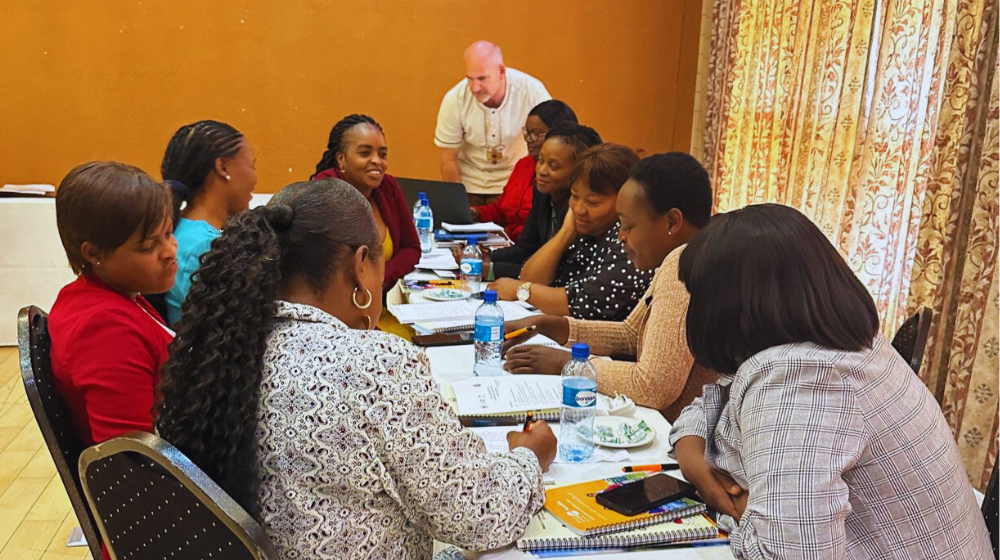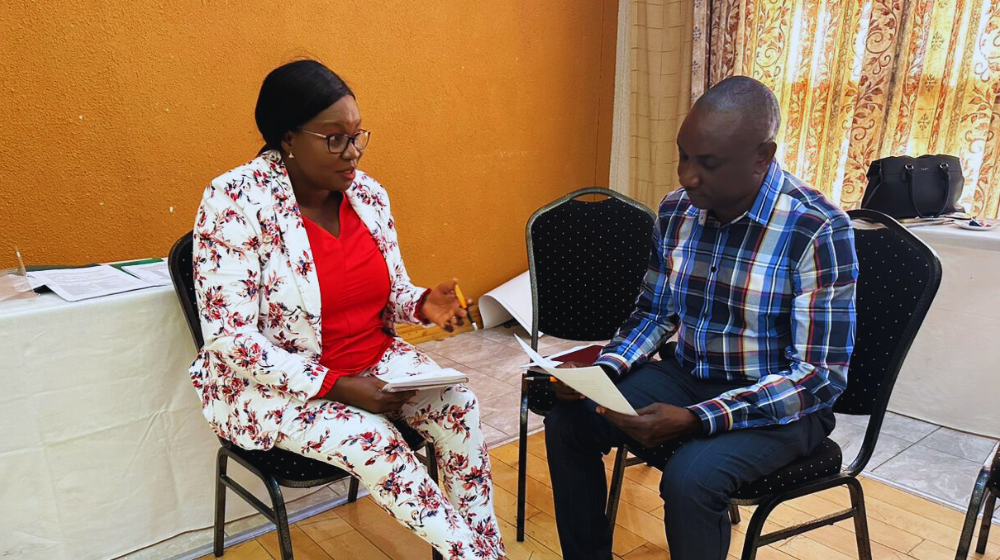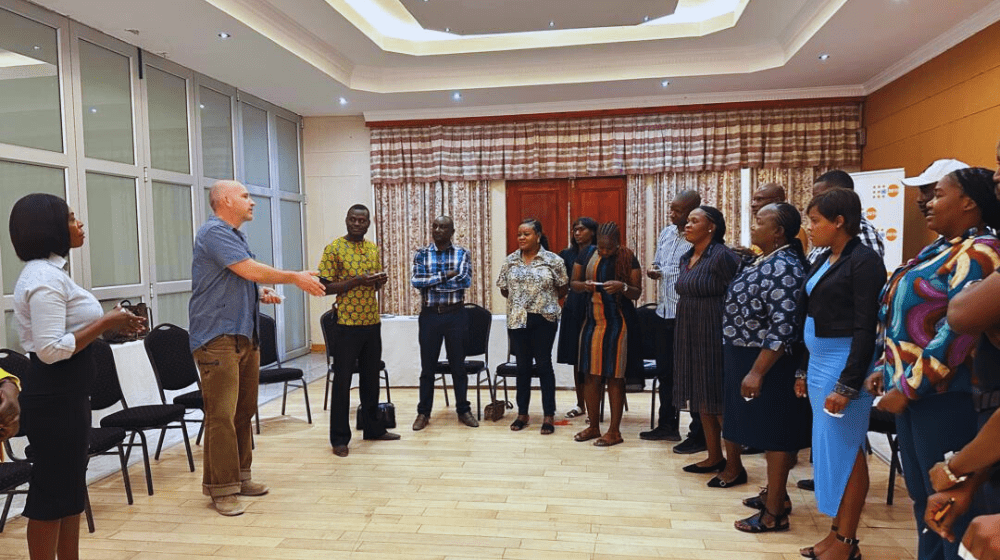
WINDHOEK, Namibia - The #LeavingNoOneBehind project in partnership with the Namibian Police Force wrapped up a three-part series of psychosocial support workshops during September for 61 social workers and investigative police officers representing all 14 regions of the country. Held in Ongwediva and Windhoek from 10–15 and 18–21 September 2023 respectively, this series of workshops primarily aimed to equip officers dealing with gender-based violence (GBV) cases with essential tools to manage the emotional toll of their work effectively.
The psychosocial support training emphasized practicality, with exercises designed to help officers navigate their emotions and handle high-stress situations. It also stressed the importance of prioritizing mental health and fostering supportive relationships within their professional circles.
This workshop could not have come at a better time for Ms. Iyaloo Talohole Abraham , an investigative officer who attended the workshop in Ongwediva, who explains that GBV significantly affects the community she serves at Onkumbula Police Station in the Oshikoto Region.
“GBV cases are a lot that side, the problem is that the community members do not want to open up about it”, said Abraham.
Alarming statistics from the Demographic and Health Survey 2013 reveal that 33% of ever-married women aged 15-49 have experienced violence from their partners. In addition, the Namibian Police recorded 5 320 cases of gender-based violence in 2021 perpetrated mostly against women and children.
It has really affected me psychologically and emotionally because I am a human being after all, sometimes I have to hide my emotions when I attend to some of these sensitive cases.
“It has really affected me psychologically and emotionally because I am a human being after all, sometimes I have to hide my emotions when I attend to some of these sensitive cases. You have to be there for them, you have to show that you are strong”, explained Abraham.
“Even though you might be feeling their pain”, she added.

The psychosocial support training enabled social workers and investigative officers with the skills to provide empathetic support to GBV survivors and emphasized the importance of effective stress management and mental well-being, ultimately creating a more compassionate and resilient police force dedicated to the welfare and safety of all citizens.
This comprehensive training initiative by the Leaving No One Behind project demonstrates a commitment by the United Nations Population Fund and the Japanese Government - without whom this initiative would not be possible - to empower law enforcement in tackling the critical issue of gender-based violence while prioritizing officers' mental and emotional health.
Increasing access to lifesaving GBV prevention and response is a key component of the Leaving No One Behind project. With invaluable support from the Japanese Government, the project’s primary goals are to restore dignity, reshape the future, and address GBV and negative sexual and reproductive health outcomes for women, girls, men, and boys in Namibia.


